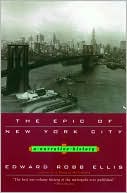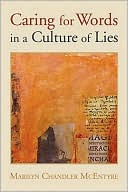William Wordsworth's "Preface to Lyrical Ballads"

In 1798, William Wordsworth and Samuel Taylor Coleridge (two of the leading poets of the Romantic literary movement in England) published a volume of their poems entitled Lyrical Ballads. To the first edition Wordsworth attached an “Advertisement” that briefly explained the purpose of the poems. By the third edition, however, this “Advertisement” had developed into a much longer Preface or, rather, a sort of “revolutionary manifesto about the nature of poetry” (Norton Anthology of English Literature, pg. 1495). It is revolutionary because Wordsworth crafted it around three main ideals borrowed from the French Revolution – immortalized in that war’s infamous rallying cry, “Liberté, égalité, et fraternité ou la mort!” This liberty, equality, and fraternity (brotherhood) form the basis of Wordsworth’s treatise, a treatise that forever transformed the role of the poet and his poetry.
What is liberty? The French Revolutionaries saw it as a freedom from a despotic regime. To many, it probably meant a complete abolition of all forms of government and a descent into anarchy. The philosophy that influenced the Revolution, however, was much more complex. In 1762, Jean-Jacques Rousseau, an Enlightenment philosopher, summed it up nicely in his Social Contract with the phrase, “Man is born free; and everywhere he is in chains” (The Social Contract, 387). Thirty-two years later, William Blake used this same phrase as inspiration for a line in his poem “London” that speaks of “mind-forged manacles.” Rousseau and Blake saw man as negatively affected by his environment. Primitive man living in nature is perfect, a noble savage, because evil does not come from nature, but from organized society. Wordsworth embraces this belief in his Preface, attempting to show that poetry can be a path towards the liberation of mankind; that is, towards equality and brotherhood. For his poems, he chose subjects from “low and rustic life” because,
In that condition, the essential passions of the heart find a better soil in which they can attain their maturity, are less under restraint, and speak a plainer and more emphatic language; because in that condition of life our elementary feelings co-exist in a state of greater simplicity (Preface to Lyrical Ballads, 1499).
Using images from “the beautiful and permanent forms of nature” (1498), Wordsworth tries to guide his reader back to man’s primitive and perfect state, releasing him from his mind-forged manacles.
This liberation leads to an equality of all men; something desperately hungered after by the peasants who stormed the Bastille after suffering many years under the oppression of the aristocracy. Wordsworth sees this equality, however, not as an equality of class, but as “the very language of men” (1500), a universal tongue, echoing the eleventh chapter of Genesis in which the whole world had one language. Showing that poetry can be used to return to this equality, Wordsworth exemplifies the role of the poet, writing, “He is a man speaking to men: a man it is true, endued with more lively sensibility, more enthusiasm and tenderness, who has a greater knowledge of human nature, and a more comprehensive soul” (1502). The poet is a “translator” for mankind and poetry is “the image of man and nature” (1503). Poetry can appeal to all people and the poet has no restrictions on the truth which he tries to convey. Wordsworth explains,
The poet writes under one restriction only, namely, that of the necessity of giving immediate pleasure to a human being possessed of that information which may be expected from him … as a man (1503).
This equality of speech between one man and another leads to the final element of the Revolutionary philosophy: the brotherhood of mankind. After the Revolution, the French strongly emphasized this ideal by calling each other ‘citizen,’ highlighting their common bond. For poetry, Wordsworth explains that the “poet, singing a song in which all human beings join with him, rejoices in the presence of truth as our visible friend and hourly companion” (1504). The universal language that Wordsworth previously spoke of is founded on two principles: passion and knowledge. All human beings have experienced love, anger, fear, and happiness. They have also witnessed the universal order and truth of nature. Because of this, Wordsworth believes that
In spite of difference of soil and climate, of language and manners, of laws and customs, in spite of things silently gone out of mind and things violently destroyed, the poet binds together by passion and knowledge the vast empire of human society, as it is spread over the whole earth, and over all time (1505).
This philosophy of the role of the poet and poetry seems to echo the words that Samuel Johnson had penned years before in his novel Rasselas when he spoke of the poet rising to general and transcendental truths as “the interpreter of nature and the legislator of mankind” (Rasselas, 1235). Yet, instead of merely offering a short chapter on this topic as Johnson did, Wordsworth expanded the beliefs and supported them with Enlightenment inspired Revolutionary thinking. Because of this, Preface to Lyrical Ballads laid the foundations of a new poetic genre – Romantic poetry, indeed, was unlike any poetry that had been written before, creating a revolution of imagination and embracing ‘the spirit of the age.’
Works Cited
Johnson, Samuel. Rasselas. 1759. The Norton Anthology of English Literature: The Major Authors. Stephen Greenblatt, General Editor. 8th edition. New York: W. W. Norton & Company, Inc., 2006
Wordsworth, William. Preface to Lyrical Ballads. 1802. The Norton Anthology of English Literature: The Major Authors. Stephen Greenblatt, General Editor. 8th edition. New York: W. W. Norton & Company, Inc., 2006
Rousseau, Jean-Jacques. The Social Contract. 1762. Great Books of the Western World. Robert Maynard Hutchins, Editor in Chief. Encyclopedia Britannica, Inc., 1952.
Labels: book reviews, bookish musings
Posted by Nicole Bianchi at 9:50 PM
|
![]()


 This is life seen through the eyes of a writer. A blog that critically examines literature, music, and film. NB, initials which coincidently coinside with the Latin words "nota bene" (mark well), belong to the blog poster, a bibliophile who likes to haunt libraries and book stores, talk about all things bookish, and ramble at any length on things regarding literature. Many of the articles posted here were written as essays for high school and college.
This is life seen through the eyes of a writer. A blog that critically examines literature, music, and film. NB, initials which coincidently coinside with the Latin words "nota bene" (mark well), belong to the blog poster, a bibliophile who likes to haunt libraries and book stores, talk about all things bookish, and ramble at any length on things regarding literature. Many of the articles posted here were written as essays for high school and college.





